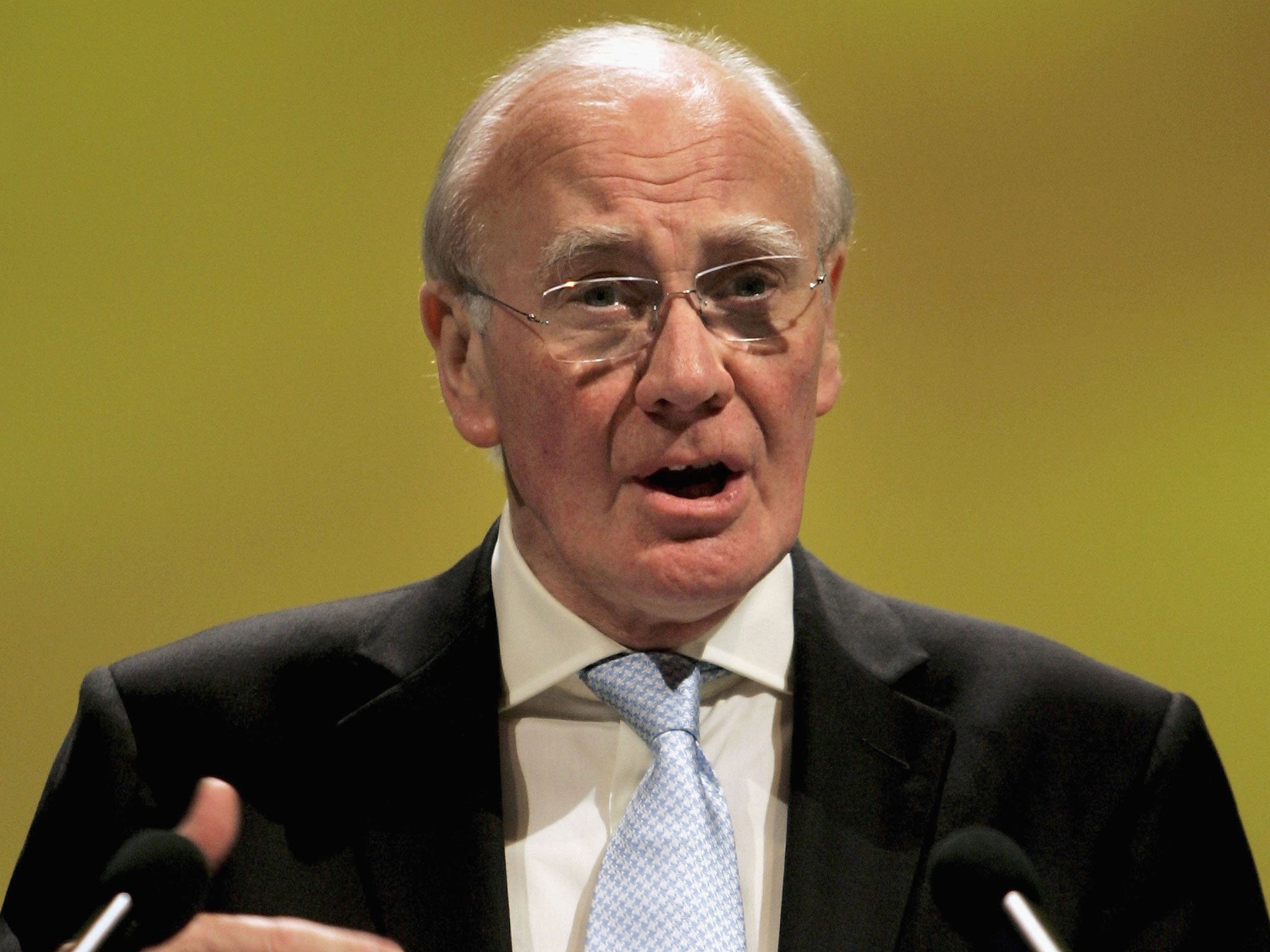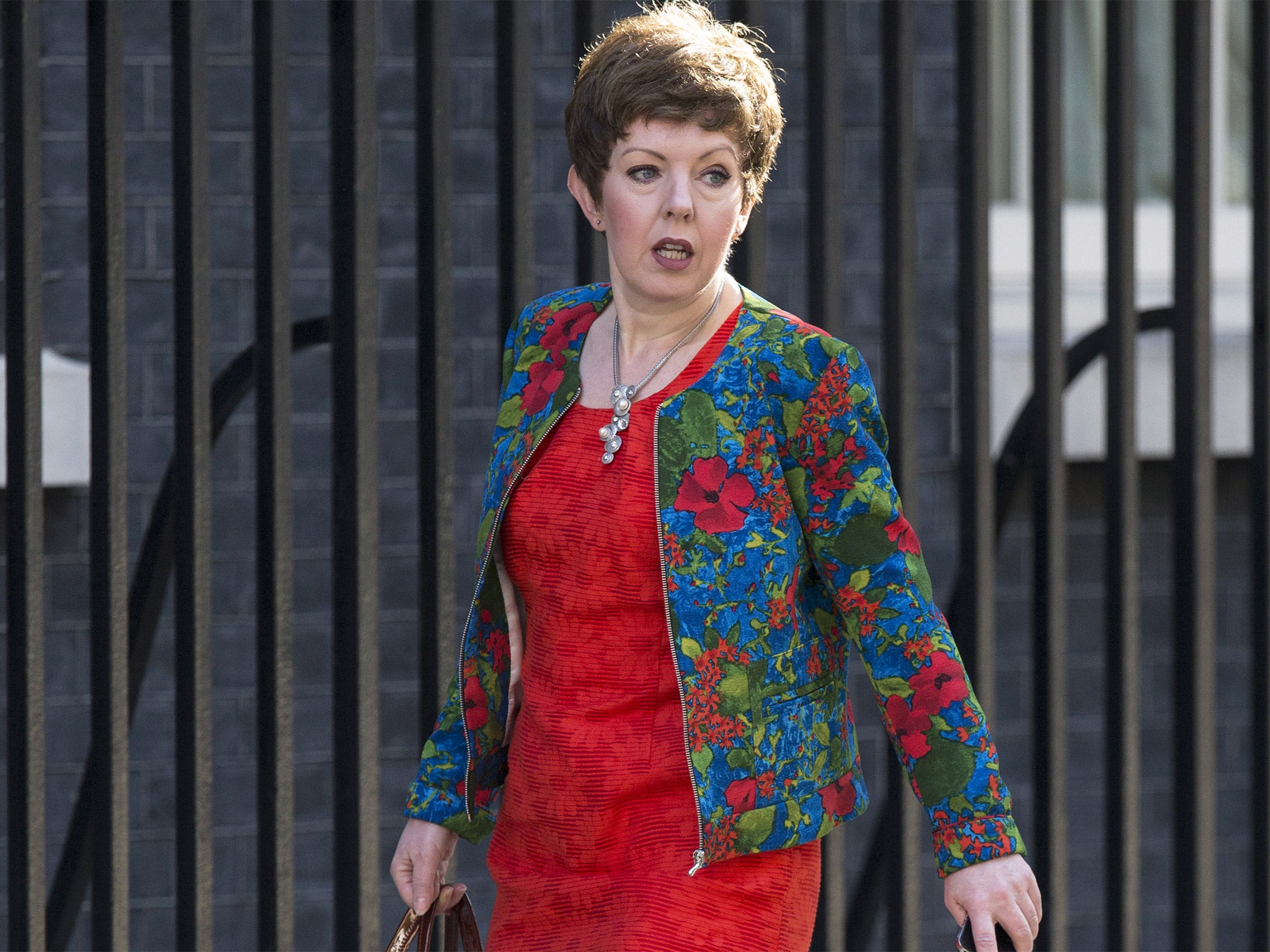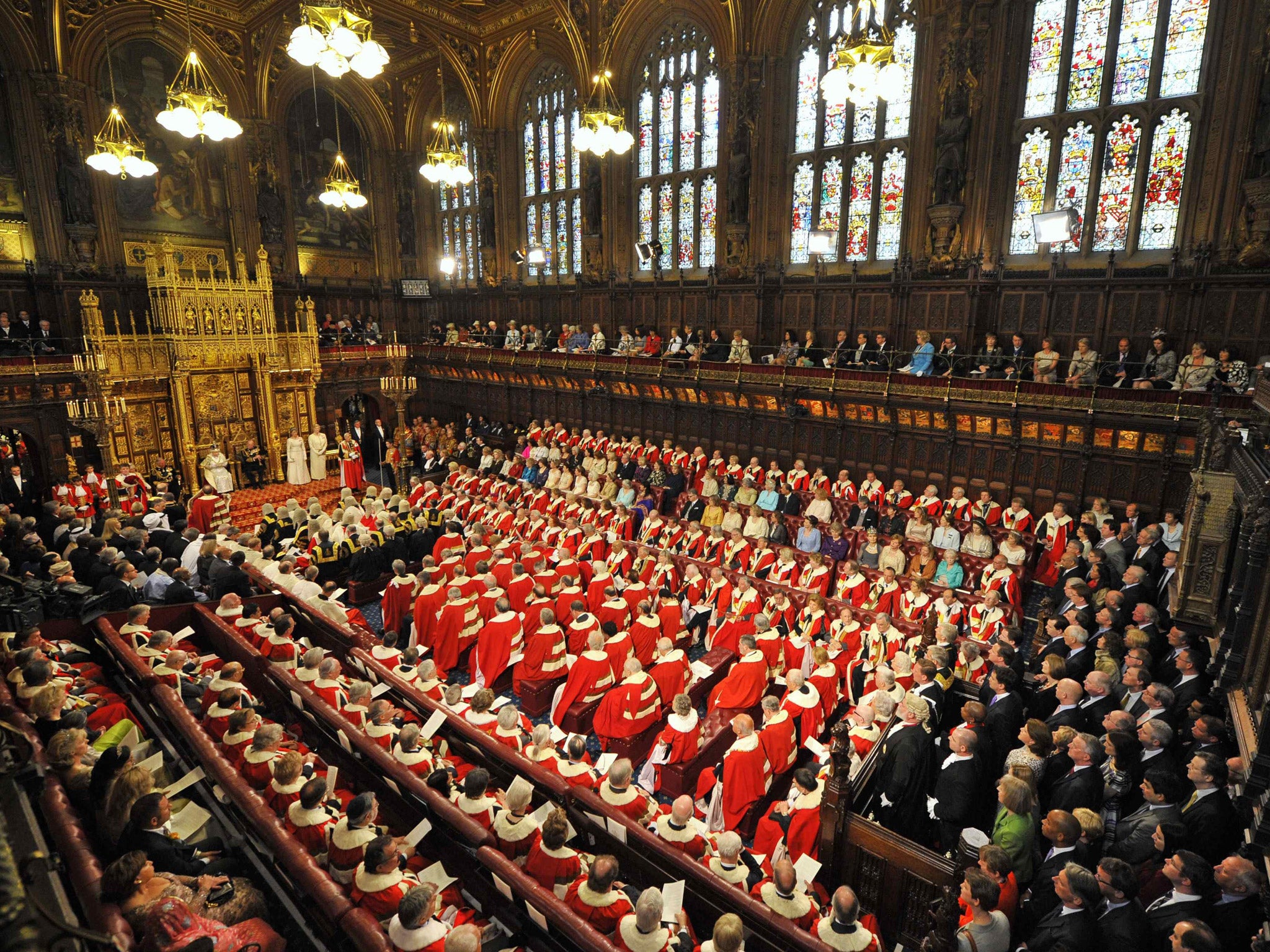Increase in Lib Dem peers risks sparking a 'crisis' in the House of Lords as rivals complain party is already over-represented
The Lib Dems' numbers in the Lords far exceed the party’s popular support

The imminent elevation of more former Liberal Democrat MPs to the House of Lords risks sparking a constitutional crisis – as rivals complain that the party is already grossly over-represented in the second chamber.
Several defeated Lib Dem MPs are set to receive life peerages in the coming weeks as a thank you for the five years they were aligned with the Conservatives in coalition.
Names believed to be on the list include the former Lib Dem leader Sir Menzies Campbell and the long serving MP Sir Alan Beith. Charles Kennedy was also believed to be in line for a peerage, before his sudden death.
But there is growing opposition in Conservative and Labour circles to any increase in the 102-strong contingent of Lib Dem peers – as their numbers in the Lords already far exceed the party’s popular support. The Lib Dems won just 7.9 per cent of the national vote in May. Baroness Stowell, the Tory Leader of the Lords, justified the decision to add to their number by telling peers: “If and when a Dissolution Honours List marking the end of the previous Parliament is published, it would be surprising if it did not reflect the fact that there were two parties in the last government.”

But one experienced Labour peer has told The Independent that he fears that a constitutional crisis is looming because it is now too easy to block government legislation in the House of Lords, where Conservatives are heavily outnumbered by Labour and Lib Dems. Dale Campbell-Savours, who was a Labour MP for 22 years before entering the Lords in 2001, says that he and like-minded peers used to have no qualms about inflicting defeats on the coalition government, because before the May 2015 election they needed to win over cross bench and independent peers to outnumber the Conservatives and Lib Dems.
But now, with the Lib Dems once again an opposition force, the Tories in the Lords can easily by out-voted.
There are 227 Conservative peers, 212 Labour, 102 Liberal Democrats, and 11 from other political parties. The other 233 out of a total of 785, including the 26 bishops, have no party affiliation.
“The government really doesn’t have a fair chance in these conditions,” Lord Campbell-Savours said.
“I don’t say that because I support the Conservatives. I want to see them defeated, but I want to see them defeated fairly. I want an elected House of Lords. The disproportionality has never been as great as this.

“There will be a crisis. There will be a vote when suddenly it’s going to an issue, and they will be saying in the House of Commons ‘who are these unelected Lords?’ The old House of Commons man in me says that what we do in the Lords has got to be fair, and this system is unfair.”
An added irony is that when Nick Clegg went into coalition with David Cameron in 2010, he made the Tories sign up to be an agreement that the Lords would be abolished and replaced with an upper house elected on the basis of proportional representation.
Ukip scored 12.6 per cent of the popular vote at the general election. Under a proportional system, nearly 70 of the 552 party affiliated peers would be from Ukip. In fact, there are only two Ukip peers.
The Green Party has only one peer, though a proportional system would give them 21. The SNP would be entitled to 46, but has none. The Lib Dems, by contrast, would be entitled to 44, rather than their 102 and rising.
This has prompted the former Tory Scottish Secretary, Lord Forsyth, to ask sarcastically whether 60 or so Lib Dem peers are going to offer their resignations.
“The implication of their own declared policy is that there would be reduction in their numbers rather than an increase,” he said.
Join our commenting forum
Join thought-provoking conversations, follow other Independent readers and see their replies
Comments